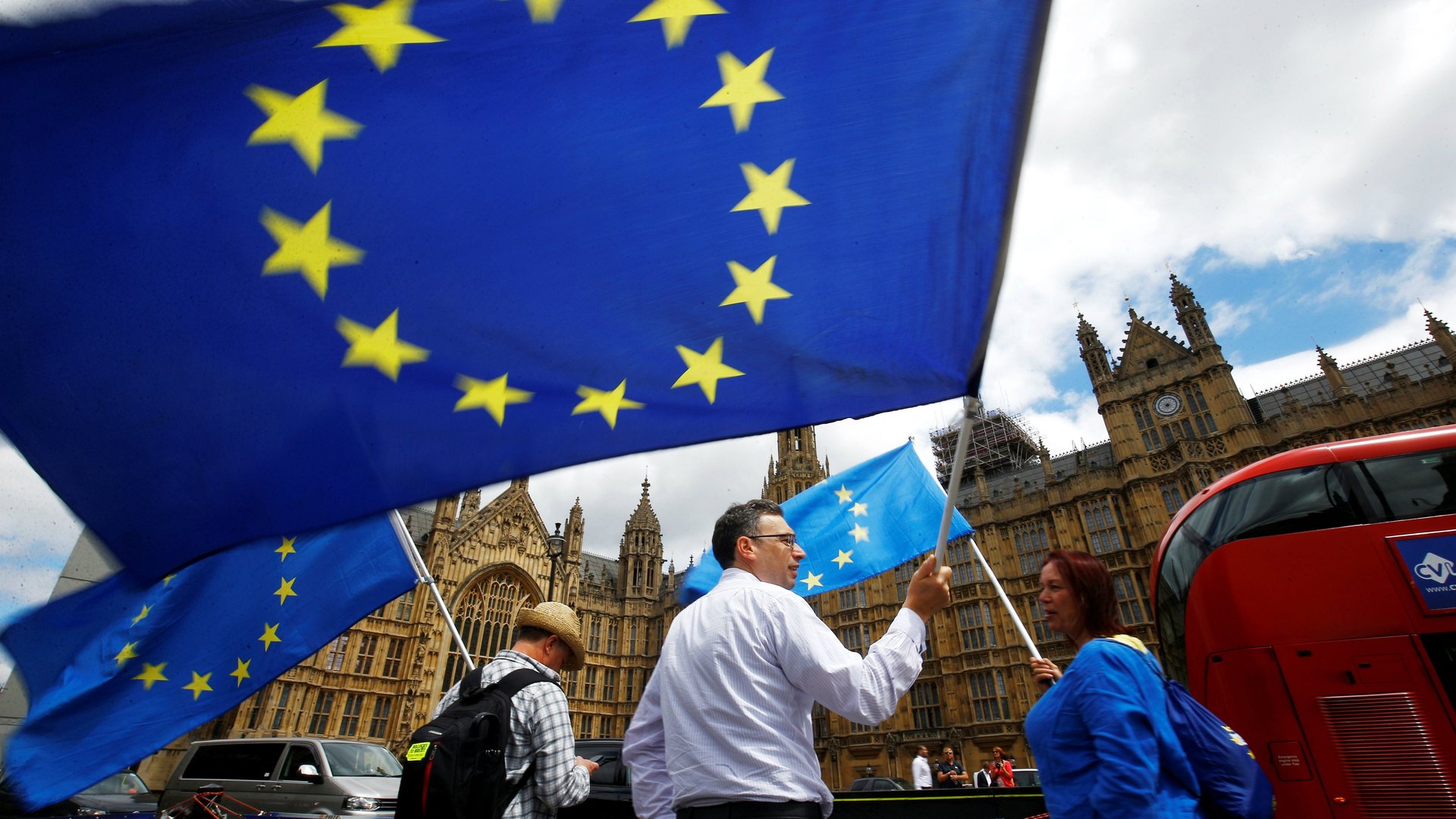What happens with Brexit while Britain’s politicians are on holiday?
Today (July 24), the UK’s houses of parliament go into their summer recess period. Neither the House of Commons nor the House of Lords will meet again until September 4.


Today (July 24), the UK’s houses of parliament go into their summer recess period. Neither the House of Commons nor the House of Lords will meet again until September 4.
The summer holidays—colloquially referred to in the press as the “silly season”—will likely stave off the Brexit-related turmoil in Britain, including threats to UK prime minister Theresa May’s leadership.
But negotiations with the European Union will continue in some form or another over the next few weeks, and newly installed Brexit minister Dominic Raab has said he is “striving every sinew to get the best deal.”
Both sides are tentatively planning to agree a withdrawal treaty at October’s EU leaders summit, which concludes on October 19. That treaty is supposed to tie off a lot of loose ends, including the post-Brexit rights of each party’s respective citizens, financial agreements, and an accord on the border in Northern Ireland. The hope is that it will also include an agreement about Britain’s two-year transition period and an outline of the future trading relationship.
That’s even as Raab’s department—and pretty much everyone else with a stake in the outcome—prepares for a no-deal “hard Brexit.” Negotiations with the EU have not been going well, and the hodgepodge strategy agreed by May and her cabinet, which led to massive unrest within her Conservative Party, has made everyone skeptical that parliament would even ratify the treaty in January.
For a period, it looked like the right-wing fringe of her party was about to oust May, and there was even talk of bringing forward the summer recess by five days to prevent that kind of mayhem. Though it won’t put an end to plotting, members of parliament (MPs) can’t hold a motion of confidence in May’s leadership (paywall) without a parliament to vote in.
Historically, the timing of the parliamentary summer recess corresponded with the rhythms of the social scene in aristocratic London. Parliament tended to finish in early August, just before the beginning of the shooting season. In 1927, prime minister Stanley Baldwin decided that parliament should meet in the autumn, when it had not done so before, and parliament has tended to break in late July in the decades since.
MPs themselves vote on the parliamentary schedule, and there are also recesses at Easter and at Christmas, and shorter breaks in February and November. During these times, MPs tend to spend time in their local constituencies and, of course, go on holiday. During recesses, parliament can only be recalled for exceptional emergencies.
In six weeks time, parliament returns to a jam-packed schedule. The publication of a key report on European migration to the UK is expected (paywall), and then the Conservative Party has its annual conference at the end of September. And the deadline for Britain leaving the EU on March 29, 2019, will of course be all the more closer.